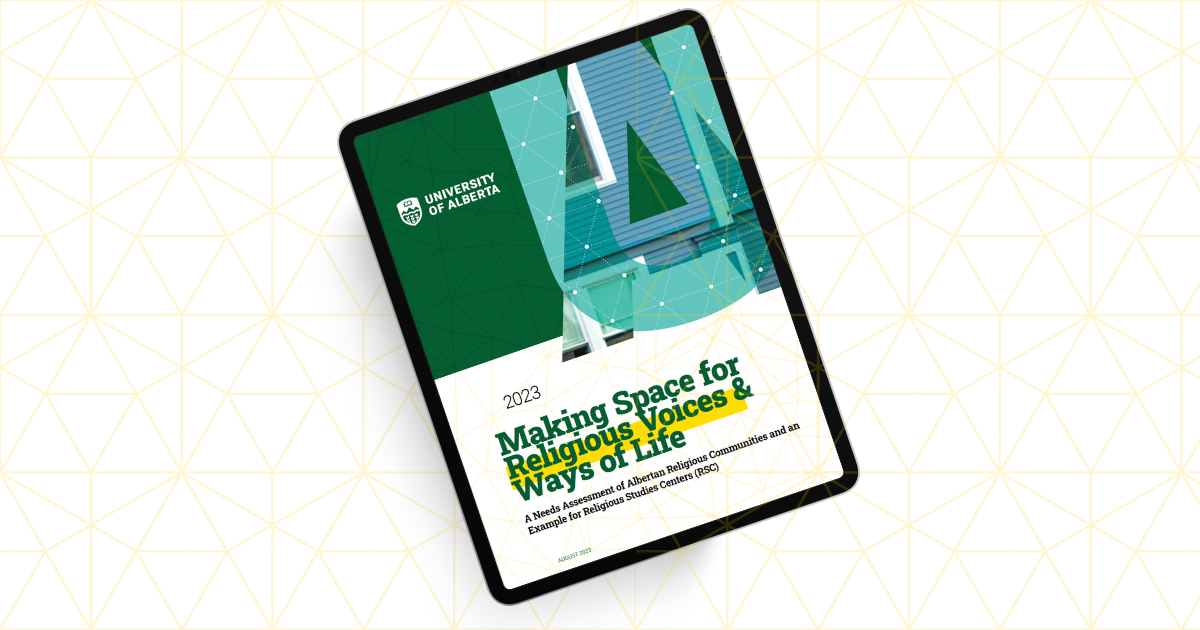Making Space for Religious Voices & Ways of Life
Chester Ronning Centre - 6 December 2023

From 2022 to 2023, the Chester Ronning Center (in cooperation with the Institute for Religious and Socio-Political Studies) undertook a community needs assessment which proceeded from a need to contribute to the limited literature about public engagement for Religious Studies Centers (RCS), as well as the need to better understand religious community organizations in Alberta.
After a literature review, the needs assessment was developed using a combination of applicable principles from public participation, stakeholder engagement, and Community Engaged Scholarship, termed in the assessment as “public engagement”. Further, a secondary analysis of available data on an extensive sample of RSCs was undertaken to determine existing practices for public engagement, areas of priority and service, and primary audiences.
Following this foundational work, a multi-methods approach was used to conduct online/phone surveys and in-depth conversations with respondents from religious community organizations in Camrose, Edmonton, and surrounding areas. A sample of 346 religious organizations was developed from publicly available data and the population was engaged using adaptable recruitment methods. The needs assessment concluded with a total of 54 survey respondents and 11 in-depth interviews as part of final data collection.
The numerical survey findings (and their corresponding open-ended questions) pertain to matters of people and priorities, including developing an understanding of organizational community connections (through social justice, advocacy, promoting religious literacy, etc) and determining the degree to which their strategic plans and outlooks have factors in common with the Ronning Center mandate. In questions pertaining to people, a clearer picture of employee, volunteer, and patron attraction, retention, and membership developed through the available responses.
Organizational understandings about public and religious life, and self-understanding and identity were also developed out of such questions. In-depth conversations built on the survey responses and aided with determining religious organization impressions of both the University of Alberta and the Ronning Center in the hopes of better understanding ways in which engagement can continue and can inform Ronning Center services, programming, and strategic planning.
In general, religious organizations feel grossly misunderstood and misrepresented, and do not find many spaces in which religious voices and ways of life are both welcomed and heard. The challenges of being religious in secular society tended to be consistent across denominational and even interfaith boundaries. Organizations have a general favourable impression of institutions like the University of Alberta and believe more can be done within it, especially in partnership with the Ronning Center, to make space for their views and ways of life to be understood. Suggestions for areas of service that the Ronning Center could expand into abounded, especially about supporting religious students on campus, and opening spaces for meaningful encounter and learning on the topic of religion.
This assessment is an important first step into better understanding religious organizations in northern Alberta for the purposes of developing ongoing engagement with a University-affiliated RSC and addressing both their concerns and their needs. Taking all phases of this assessment into consideration, the final report concludes with a number of recommendations which can inform the strategic planning of RSCs, especially the Ronning Center.
READ THE FULL COMMUNITY REPORT HERE